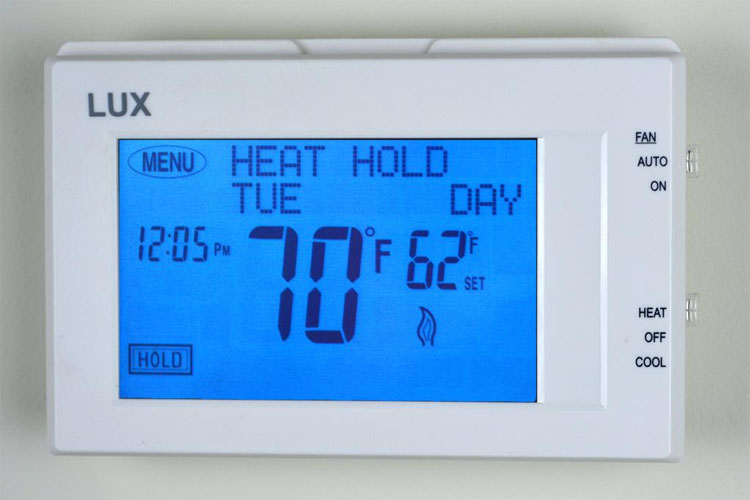Staying in a room with a low temperature can be a cause of high blood pressure
According to a new study by the University College London in Hypertension magazine on Tuesday, low room temperatures are linked to the risk of high blood pressure.
Dr Stephen Jivraj, of the University of London's Institute of Epidemiology and Health Care, said in a press release: "In addition to measures like dieting, changing the lifestyle habits people can do To reduce the risk of high blood pressure, a study by College London suggests that allowing a slightly warmer indoor temperature can be of great benefit. "
When the indoor temperature drops by 1 degree F, there will be an increase of about 0.48 mmHg in systolic blood pressure and 0.45 mmHg in diastolic blood pressure. Normal blood pressure is less than 120/80 mmHg.
According to the guidelines of American College of Radiology and the American Heart Association, systolic blood pressure (first number only) measures the force of contraction of the heart, and diastolic blood pressure is resistance in the blood vessels.

Leaving a slightly warmer indoor temperature can bring great benefits.
Jivraj said: "The study has helped explain why the rate of hypertension increases, as well as an increased risk of death from stroke and heart disease. In the upcoming winter months, research only So that the temperature problem in the home should be taken more seriously for diagnosis and treatment decisions. "
The researchers analyzed data on people in the UK health survey in 2014. Nurses visited 4,659 participants in their homes, then nurses took blood pressure and checked them. in the living room.
The researchers also calculated the social and outdoor temperature deficiencies to determine an independent temperature relationship in the home.
The average systolic heart rate was 126.64 mmHg and the diastolic blood pressure was 74.52 mmHg compared to 121.12 mmHg and 70.51 mmHg in the warmest houses.
The effect of indoor temperature on blood pressure is very strong for people who do not exercise regularly.
Hongde Zhao, a researcher at University College London, said: "We will ask clinicians to think about room temperature issues because they can affect the treatment regimen because a few "People with limited hypertension and those in cold temperatures may need a higher dose of treatment."
Researchers noted the need for adequate home heating during the winter months. They said the recommended temperature is 69.8 degrees F (equivalent to 21 degrees C).
- What is high blood pressure for each subject?
- Find out the secret of increasing blood pressure
- What should I pay attention to on New Year's Day?
- Sleep immediately after lunch is prone to high blood pressure
- High blood pressure increases the risk of dementia in middle age by 45%
- There is a link between sleep and high blood pressure
- Find a simple 'medicine' to treat high blood pressure
- Use blood pressure monitor properly
- Eating habits affect high blood pressure
- 9 foods that help lower blood pressure
- High blood pressure is
- High blood pressure in children
 Green tea cleans teeth better than mouthwash?
Green tea cleans teeth better than mouthwash? Death kiss: This is why you should not let anyone kiss your baby's lips
Death kiss: This is why you should not let anyone kiss your baby's lips What is salmonellosis?
What is salmonellosis? Caution should be exercised when using aloe vera through eating and drinking
Caution should be exercised when using aloe vera through eating and drinking